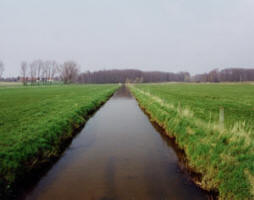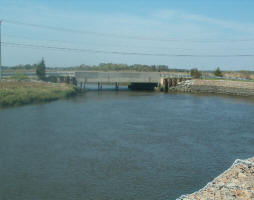 International Water Technology Funding Platform "Watervent"
International Water Technology Funding Platform "Watervent"
Today
we confirmed our 20th investor for our international water technology funding platform in
1. There is no such thing as economic water scarcity, only political water scarcity. Ek Sonn Chan told the story of how the Phnom Penh Water Supply Authority had been transformed between 1993 and 2009. The number of connections increased seven-fold, non-revenue water fell from 73% to 6%, collection efficiency rose from 48% to 99.9%, and total revenues increased from $300,000 to $25 million, with an $8 million operating surplus. After receiving initial grants and soft loans from international financial institutions, the utility is now self-financing. Tariffs increased steeply in the early years, but they have been held constant at around $0.24/m3 since 2001, because the combination of service expansion, reduced water losses and high collection rates has guaranteed a sufficient cashflow for debt repayment as well as capital expenditure. It is a great story that should be reproduced across the developing world – if politicians allow it to happen.
2. The oil companies are waking up to water. Joppe Cramwinckel of Shell explained that his company is one of the largest producers of water in the world. The ratio of water to oil produced in wellfields has nearly doubled from around 3:2 in 2000 to around 3:1 in 2007. It could reach 5:1 by 2025. Currently most of this water is reinjected into the ground, but Shell is pioneering the purification of produced water so that it can be used to grow crops for biomass production. It is a new paradigm which should be an opportunity for the water industry. There was some debate, however, about whether water services companies can get past the oilfield service companies to make the change happen.
3. Three slides are responsible for billions of dollars of losses in the water industry. Underground Solutions boss Andy Seidel gave a presentation summarising 20 years of mergers and acquisitions activity in the water sector. Each wave of acquisition seemed to begin with a group of executives sitting in a conference room deciding what market to target next, and watching consultants present the case to enter the water industry. The presentation always includes the same three slides: one talking about the supply and demand balances, another illustrating the global market drivers, and a third showing how water stocks have out-performed. The executives agree to buy their way into this great market, only to discover that the market is a lot more difficult than they thought. Despite spectacular “flameouts” such as Waterlink, Azurix and US Liquids, the three slides still have the power to enchant executives as they sit in the conference room with the blinds down.
4. Meeting the Millennium Development Goal for water can be easy. Cristino Panlilio described how his company, Balibago Waterworks Systems, serves around 70,000 customers in a rural area of the Philippines. He grows the business by going out to adjacent towns and villages and asking whether they would like a piped water supply. They are shown the regulator’s schedule of tariffs, and then if they want piped water and are prepared to pay for it, they get it. It is an attractive proposition for communities which might previously have relied on hand pumps and wells, and it makes good money for Balibago’s investors. If the rest of the world allowed water companies to work like this, there wouldn’t still be 3 billion people waiting for a piped connection.
5. The campaign against private water is losing clarity, as the private water sector becomes more diverse. We invited one of the leading campaigners against private water, Maude Barlow, to join a debate on whether water should be run as a business. Her arguments seemed to lack the immediacy they enjoyed ten years ago, when Aguas del Tunari was forced out of its contract in Cochabamba, Bolivia. In those days, private water meant big foreign companies taking long-term concessions to run water services in developing countries, with a view to earning a return directly from customer tariff income. Today, private water means a whole range of things, from small-scale systems operators laying pipe to connect up villages in Uganda or the Philippines, to the big independent water and power projects of the Middle East. As it has become a more complex and variegated sector, it has become more difficult to come up with a one-size-fits-all argument against private water.
| Contact information |
Leonhard Ventures, Gabriele & Ulf Leonhard GbR, Kirchhofstrasse 48, D - 12055 Berlin
(email: ulf.leonhard@leoven.com) Phone: 030 400 396 36 ; Fax 030 400 396 37 |
|---|---|
| Event type | Conference |
| File link |
http://www.watervent.com |
| Source | Leonhard Ventures |
| Subject(s) | FINANCE-ECONOMY , INDUSTRY , MEASUREMENTS AND INSTRUMENTATION |
| Relation | http://www.globalwaterintel.com/accounts/mailinglist/ |
| Geographical coverage | Germany, |
| Address | Berlin |
| Organizer | Leonhard Ventures |
| Target audience | International |
| Period | [20/10/2010 - 21/10/2010] |
| Status | Confirmed |
| Working language(s) | ENGLISH |
 you are not logged in
you are not logged in





